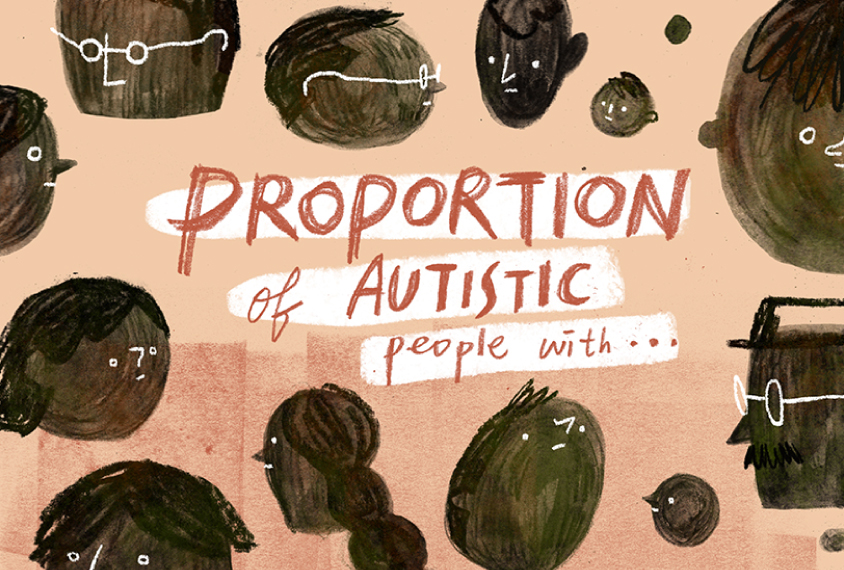Jeanne Erdmann is an award-winning health and science writer based in Wentzville, Mo. A member of Association of
Health Care Journalists board of directors, she is the chair of the organization’s Freelance Committee. Her work has appeared in Discover, Women’s Health, Aeon, Slate, The Washington Post, Nature, Nature Medicine and other publications. You can follow her at @jeanne_erdmann.
Jeanne Erdmann
From this contributor
Analysis pins down prevalence of mental health conditions in autism
Eight mental health conditions occur unusually often in autistic people, a new analysis suggests.

Analysis pins down prevalence of mental health conditions in autism
Drug screen reveals potential treatments for Rett syndrome
An experimental leukemia drug and a chemical in black pepper ease breathing and movement problems in a mouse model of Rett syndrome.

Drug screen reveals potential treatments for Rett syndrome
Explore more from The Transmitter
Astrocytes orchestrate oxytocin’s social effects in mice
The cells amplify oxytocin—and may be responsible for sex differences in social behavior, two preprints find.

Astrocytes orchestrate oxytocin’s social effects in mice
The cells amplify oxytocin—and may be responsible for sex differences in social behavior, two preprints find.
Neuro’s ark: Spying on the secret sensory world of ticks
Carola Städele, a self-proclaimed “tick magnet,” studies the arachnids’ sensory neurobiology—in other words, how these tiny parasites zero in on their next meal.

Neuro’s ark: Spying on the secret sensory world of ticks
Carola Städele, a self-proclaimed “tick magnet,” studies the arachnids’ sensory neurobiology—in other words, how these tiny parasites zero in on their next meal.
Autism in old age, and more
Here is a roundup of autism-related news and research spotted around the web for the week of 2 March.

Autism in old age, and more
Here is a roundup of autism-related news and research spotted around the web for the week of 2 March.